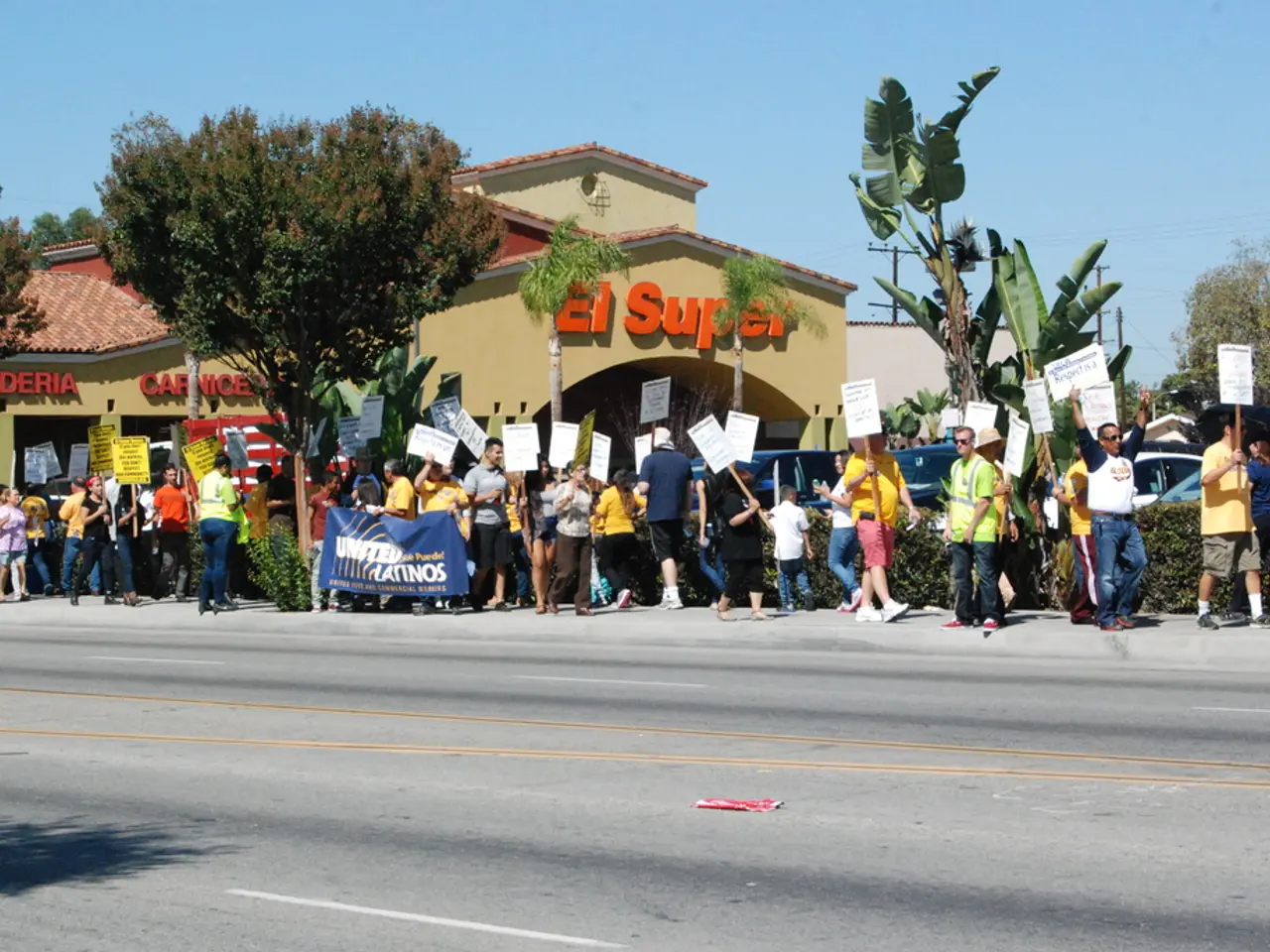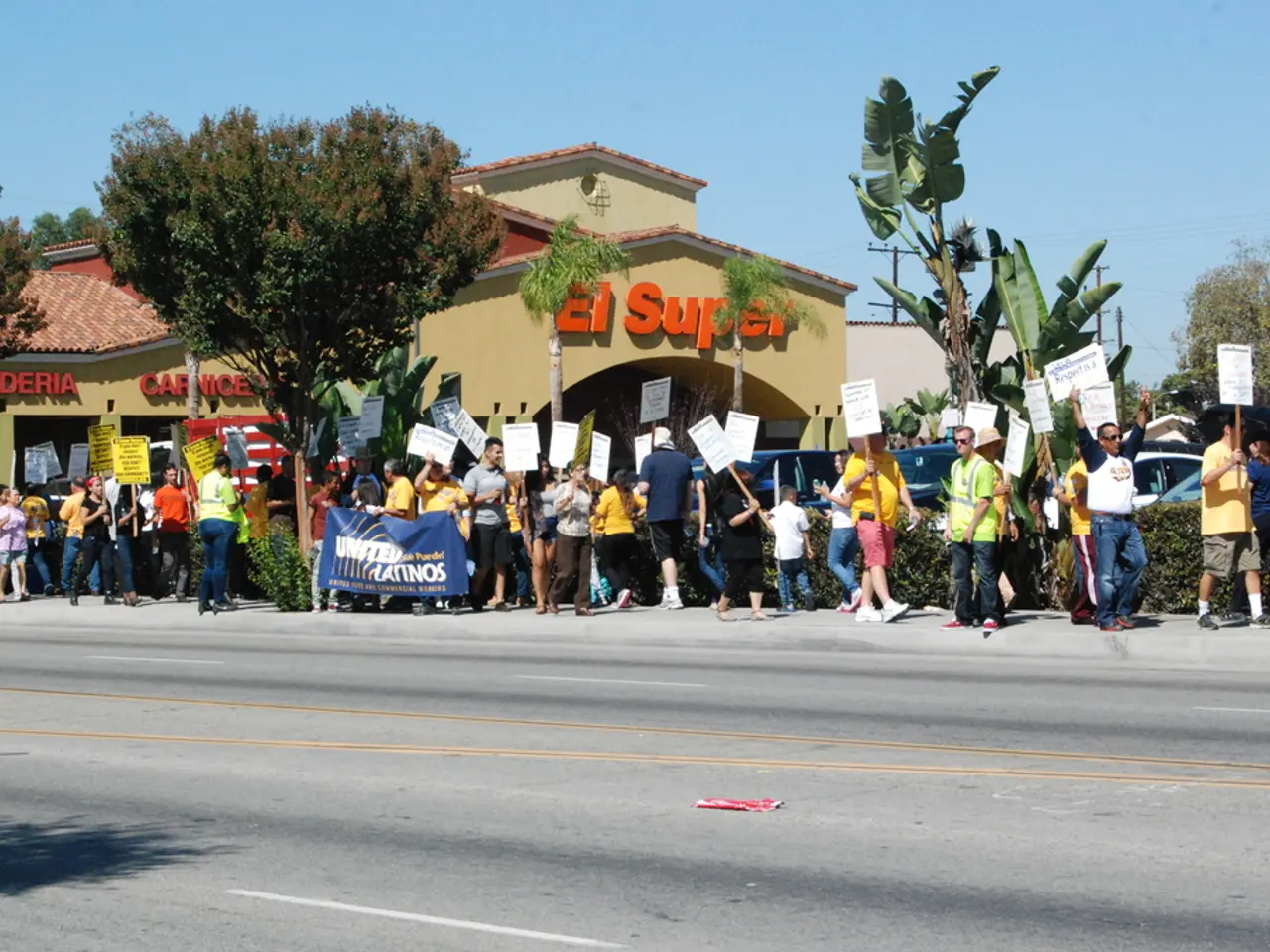The Bloody Reign of the Peasants' Revolt: The Demise of Archbishop Simon Sudbury
Events of June 14th in the Past:
The Tower of London, a formidable structure overlooking the Thames, was left vulnerable on June 14, 1381, as a pack of rebellious serfs stormed its gates. This event, fondly remembered as the Peasants' Revolt, was a massive upheaval against the government led by the common folk - a pitchfork rebellion, if you will.
The revolt had simmered for months before erupting into chaos in June. Its storm reached the Tower when rebels, seeking justice, breached its gates which strangely lay open. Their target? The archbishops of the realm - particularly Simon Sudbury, Archbishop of Canterbury, who was perceived as a major oppressor by the rebels.
Unfortunately, Sudbury found no sanctuary within the Tower's fortress walls. Confronted in the White Tower's chapel, he was seized by the furious mob. His captors, in no mood for mercy, dragged him to Tower Hill where he met an abrupt end. Despite eight attempts, the executioners struggled to sever Sudbury's head, illustrating the vengeful fervor of the mob. His lifeless head was paraded through the streets, eventually finding its place atop London Bridge as a grim reminder of the people's wrath.
More on Betrayal and Retribution
Sudbury's gruesome death was more than just a momentary shift of power. It was a stark warning to those in positions of authority, the consequences of greed and oppression made painfully clear. His skull, a chilling reminder of the past, is still preserved in St Gregory's Church in Sudbury, Suffolk. | Written by Radical Rift
The Bounty's Colossal Mutiny: Captain William Bligh's Perilous Voyage
On June 14, 1789, Captain William Bligh and his faithful 17-man crew were cast off in an open boat by the mutineers aboard the Bounty. Their journey to safety was a harrowing trek of 3,600 miles, a testament to their resilience. | Dive deeper into the mutiny on the Bounty story
Harriet Beecher Stowe's Birth: ABeacon of Abolition
June 14, 1811, welcomed the birth of Harriet Beecher Stowe in Litchfield, Connecticut. She would go on to become a prominent abolitionist and author, best known for her powerful anti-slavery novel, Uncle Tom's Cabin, serialised in the National Era, an abolitionist newspaper in 1851.
Charles Babbage's Visionary Difference Engine
In a presentation to the Royal Astronomical Society on June 14, 1822, Charles Babbage proposed his ingenious invention: the Difference Engine. This was an intricate mechanical calculator designed to generate astronomical and mathematical tables with exceptional precision.
Edward FitzGerald, the Poet of Rhyme and Reason
June 14, 1883, marked the end of poet and historian Edward FitzGerald's life in Norfolk, England, at the age of 74. Notable for his work on The Battle of Naseby and his innovative adaptation of the Persian poetry collection called the Rubaiyat of Omar Khayyam.
The German Blitz on Paris: 140th Anniversary of Marengo
On June 14, 1940, German troops marched triumphantly into an undefended Paris, commemorating the 140th anniversary of Napoleon's victory over the Austrians at the Battle of Marengo.
Explore more Events that Changed History | Previous: June 13 | Next:** June 15
- The Peasants' Revolt, a formidable struggle against the authorities in medieval England, was embedded in the broader context of war-and-conflicts, politics, and general news of the time.
- The mutiny on the Bounty, a notable event in naval history, represents a significant episode in politics, war-and-conflicts, and general news, demonstrating the complex dynamics of power and rebellion.






